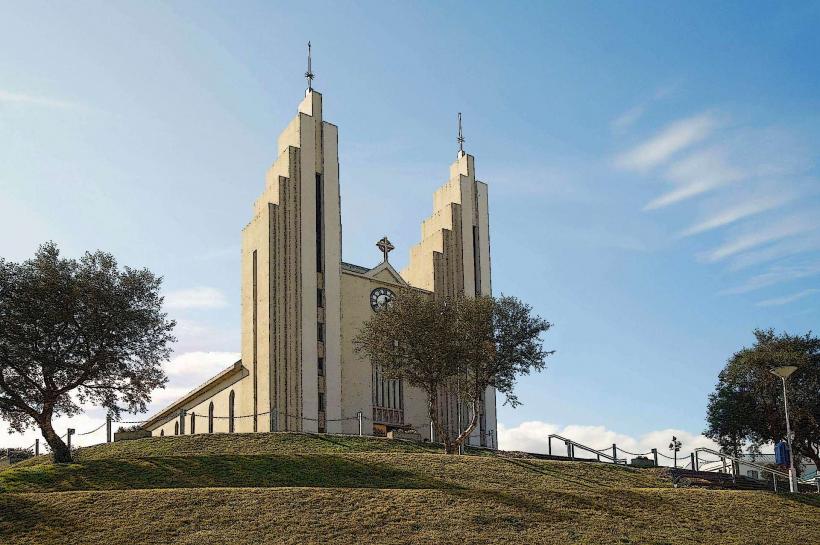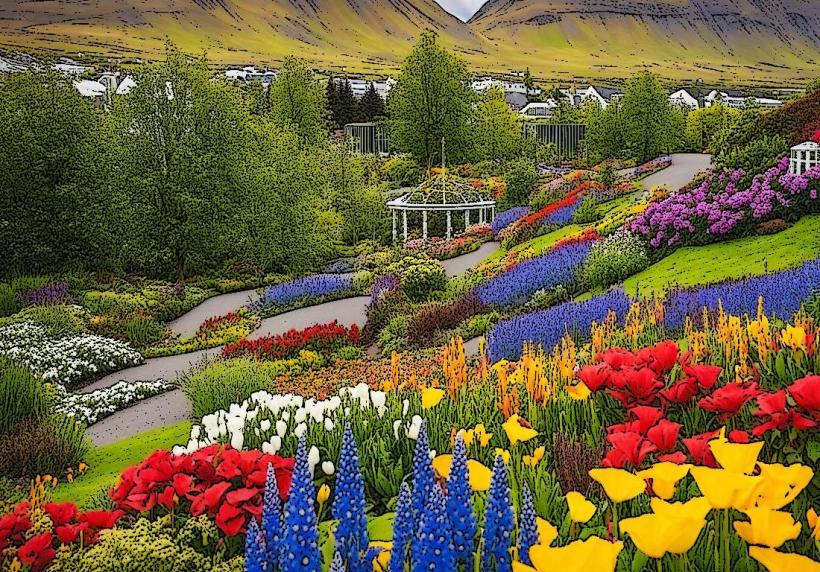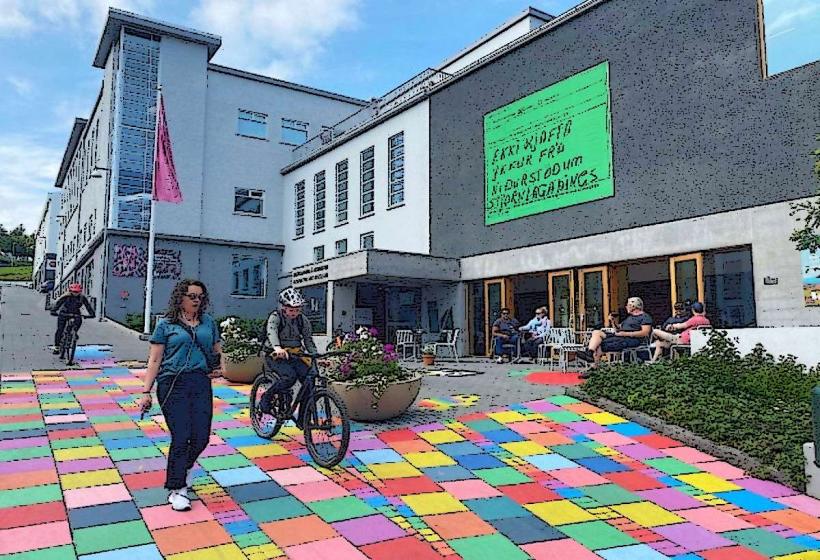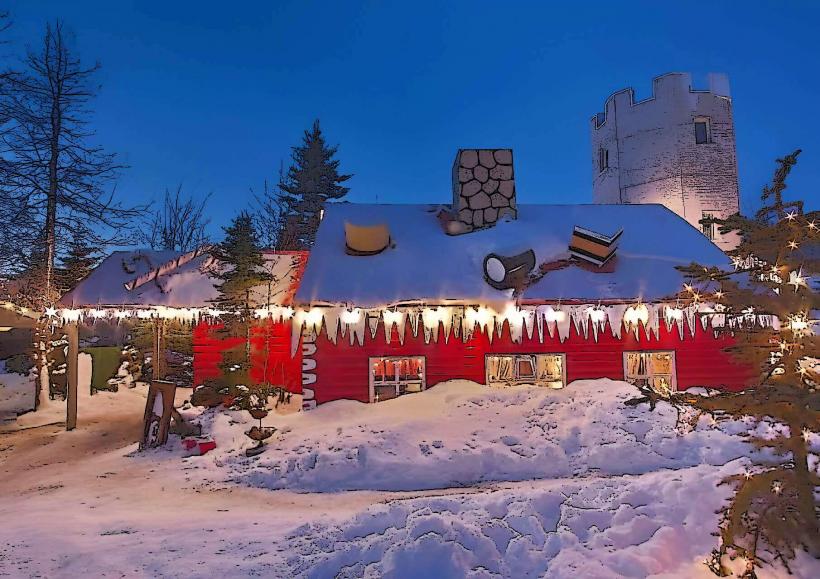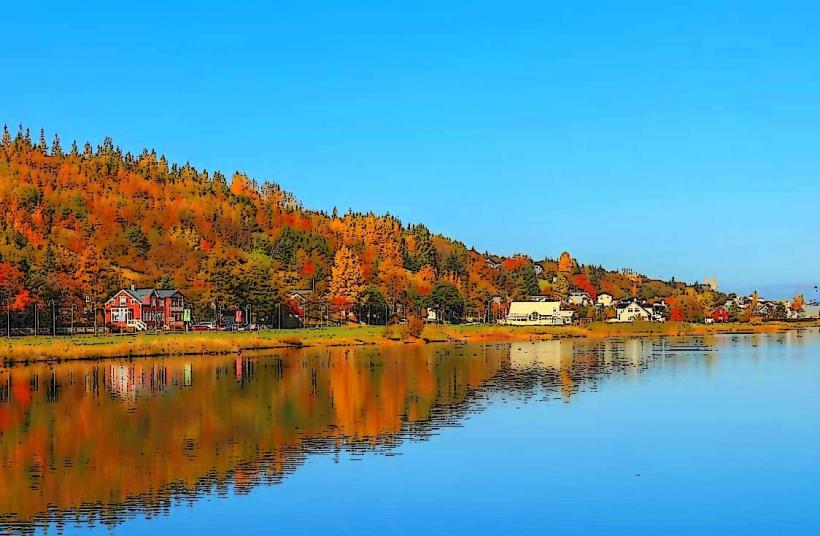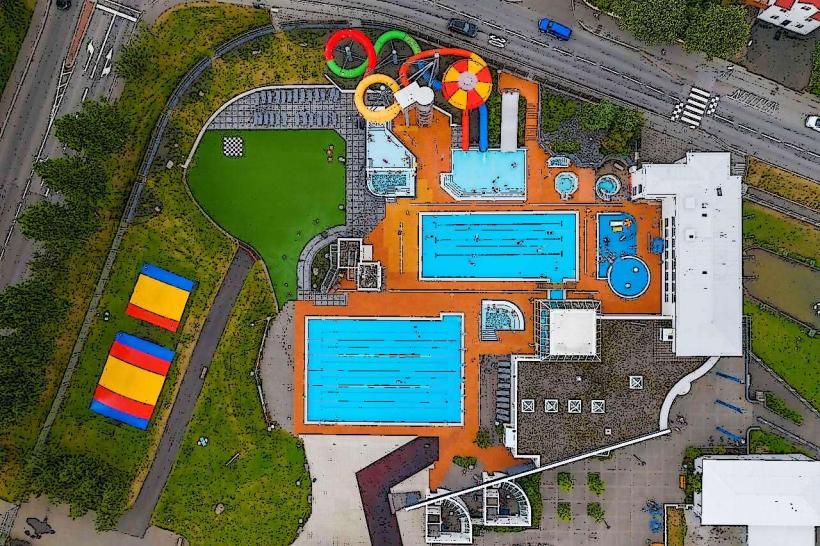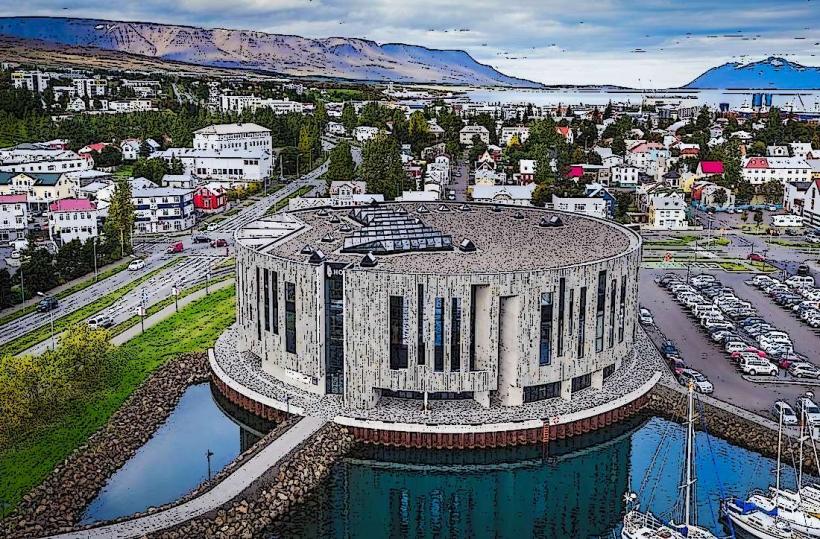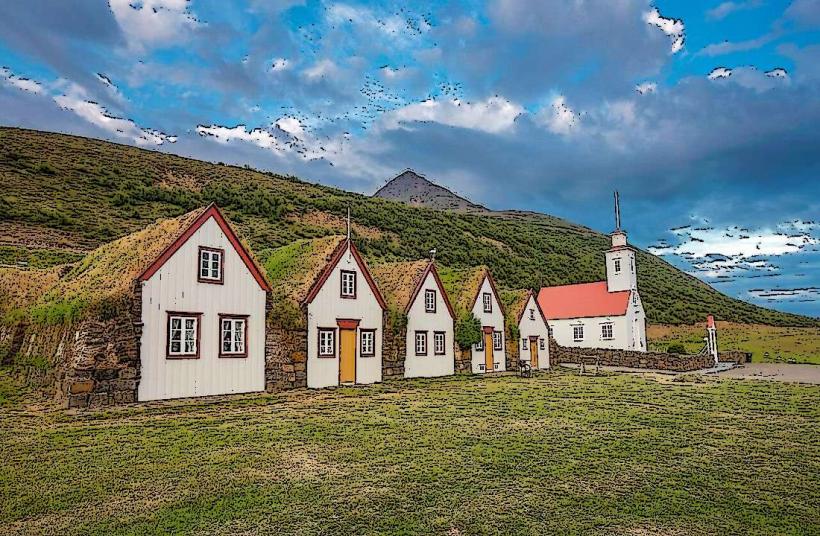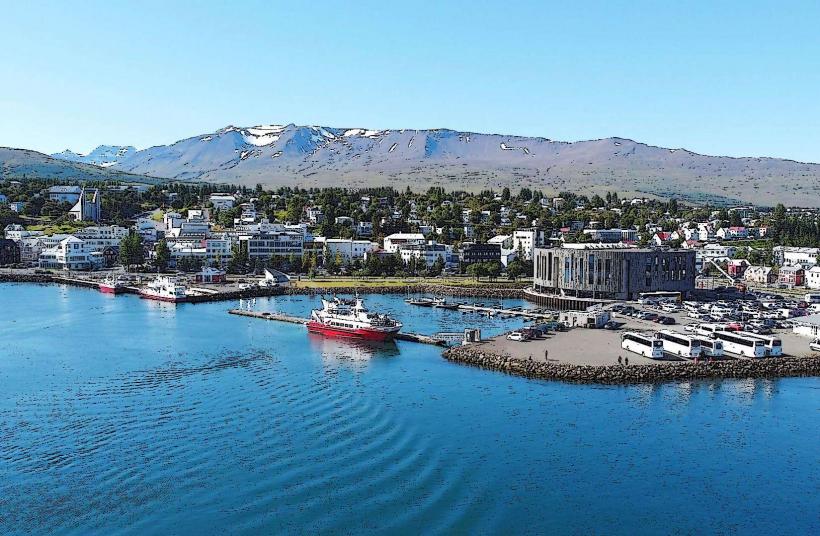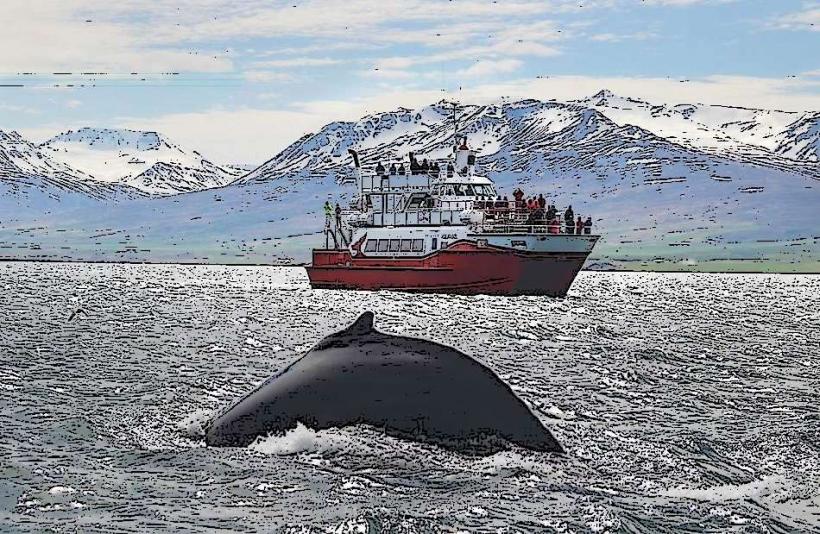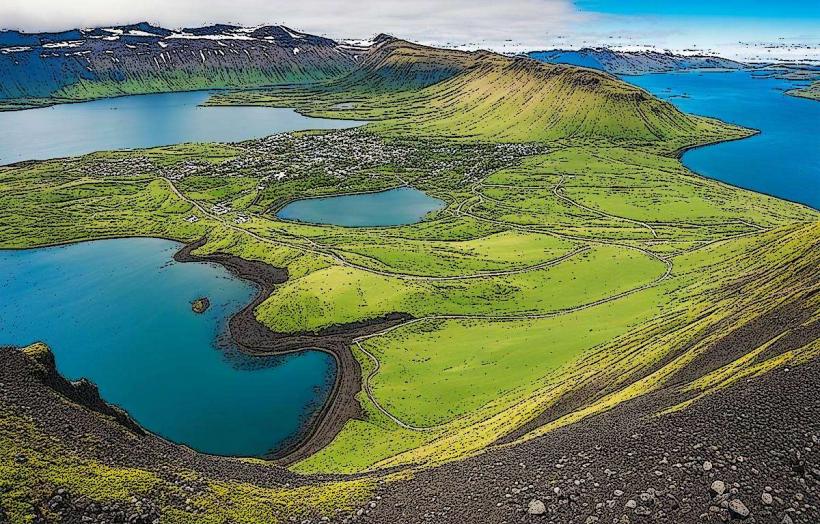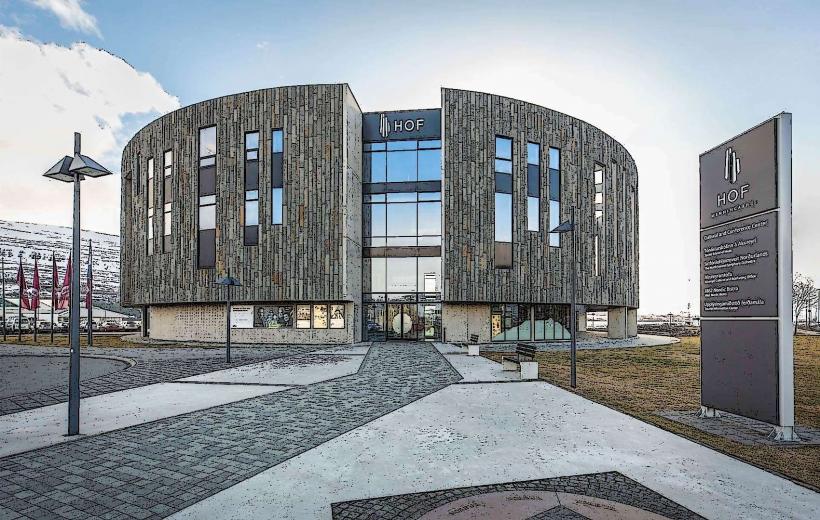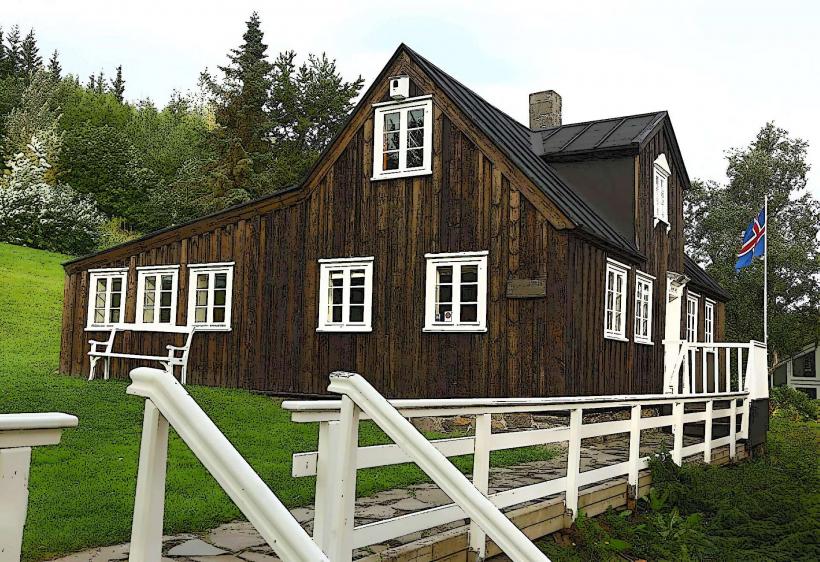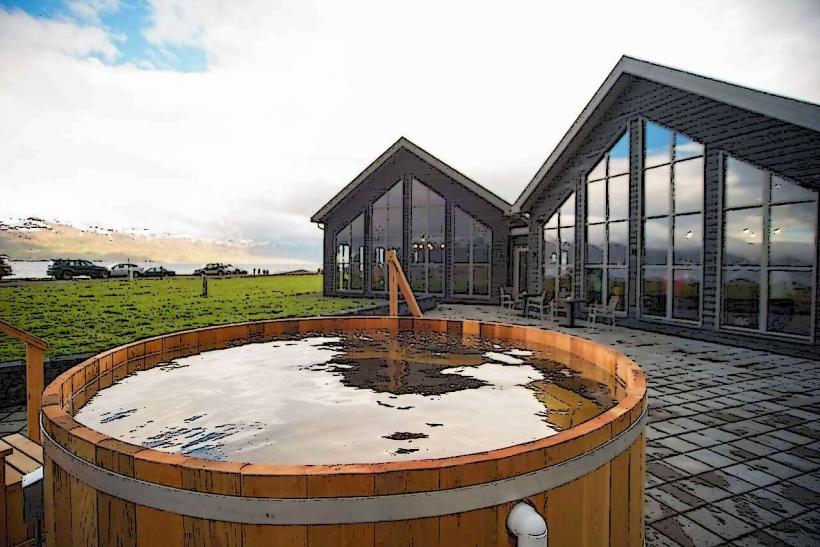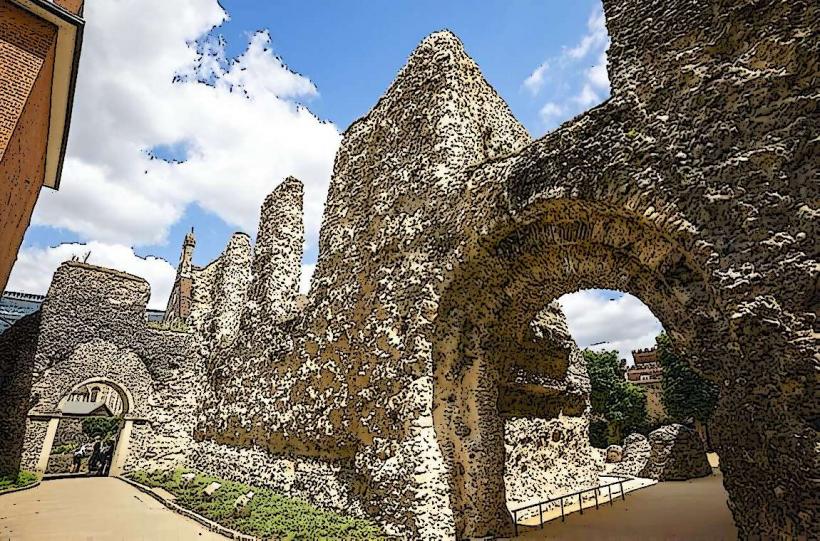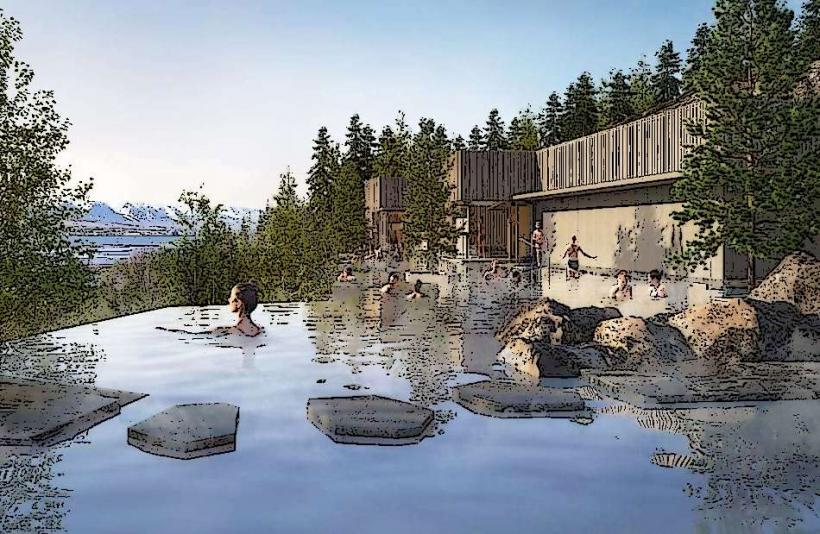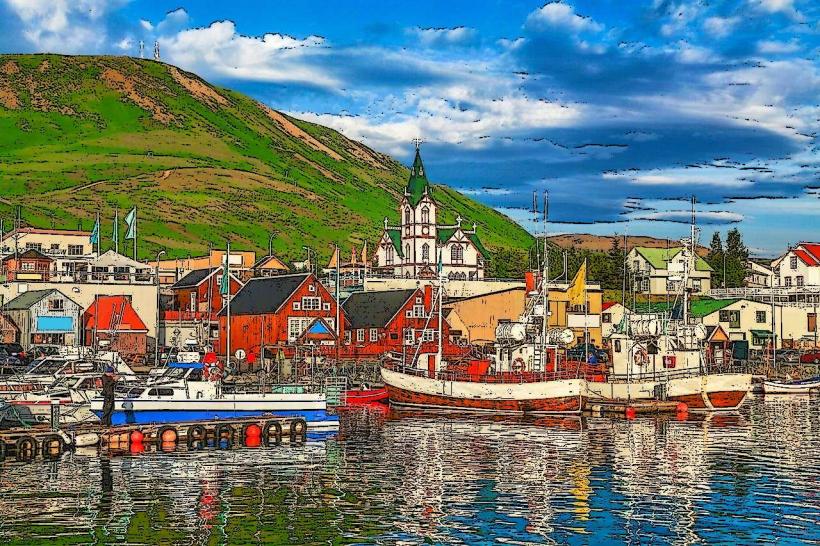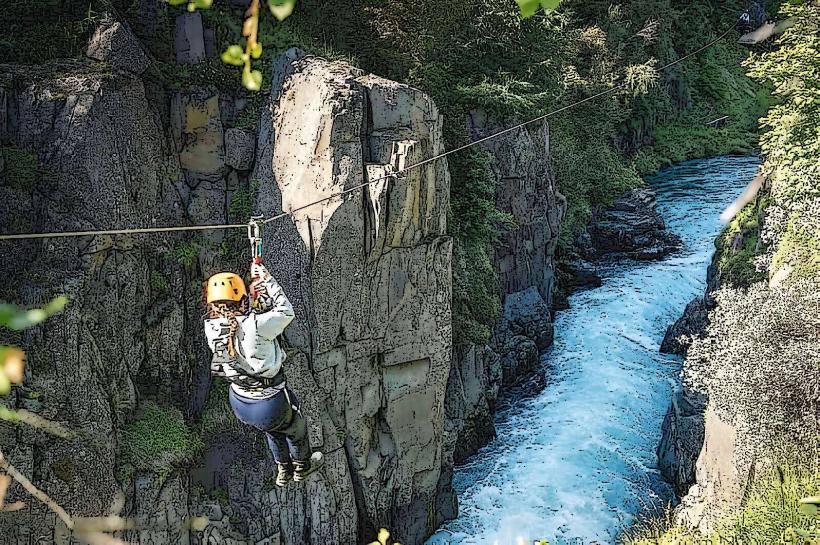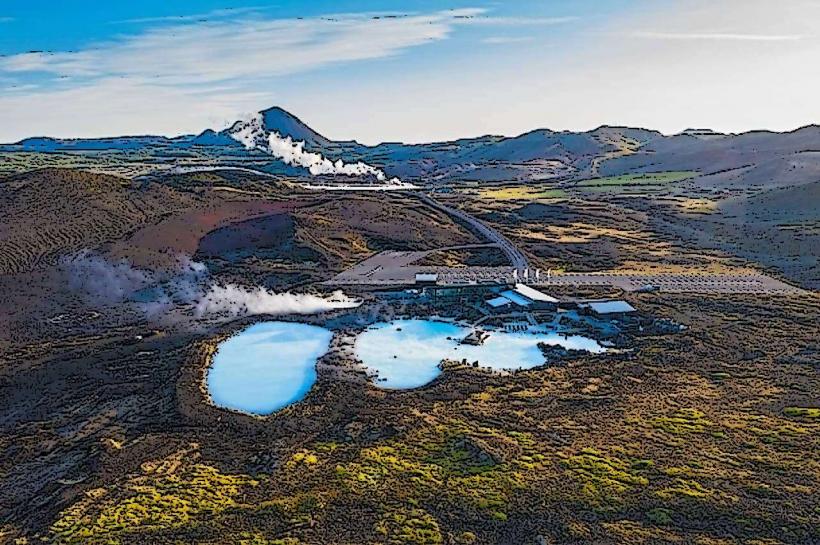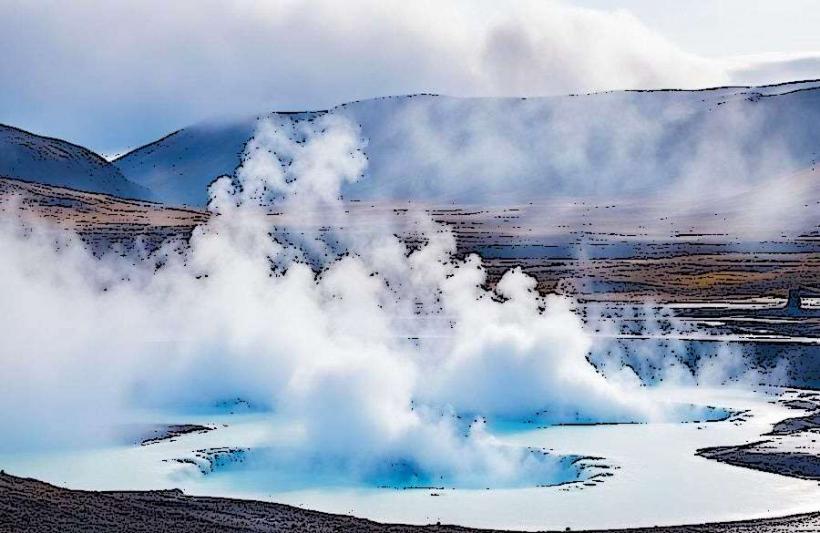Information
Landmark: Viti CraterCity: Akureyri
Country: Iceland
Continent: Europe
Viti Crater, Akureyri, Iceland, Europe
Viti Crater is a maar crater containing a geothermal lake, situated within the Krafla volcanic system in northern Iceland. It is located approximately 100 kilometers east of Akureyri.
Visual Characteristics
The crater is circular, measuring approximately 300 meters in diameter. Its lake displays an opaque, milky turquoise-blue color, indicative of dissolved geothermal minerals. The crater rim consists of reddish-brown scoria and volcanic ash, supporting sparse, low-lying vegetation.
Location & Access Logistics
Viti Crater is located within the Krafla geothermal area. Access is primarily via Route 1 (Ring Road), turning onto Route 863 towards Krafla. The site is approximately 100 kilometers east of Akureyri. A dedicated parking lot is available directly at the crater rim. Public transport from Akureyri is not available; private vehicle or organized tour is necessary.
Historical & Ecological Origin
Viti Crater is a maar crater, formed by a phreatomagmatic eruption in 1724. This event was part of the "Mývatn Fires," a series of volcanic episodes occurring between 1724 and 1729. The crater's formation resulted from explosive interactions between rising magma and groundwater within the Krafla volcanic system.
Key Highlights & Activities
A walking path encircles the crater rim, offering views of the lake and surrounding landscape. Photography of the distinctive lake color is a primary activity. Observation of the broader Krafla geothermal field, including steam vents and mud pots, is possible from nearby vantage points.
Infrastructure & Amenities
No dedicated restrooms or shade structures are present directly at Viti Crater. Basic informational signage is installed. Cell phone signal (4G/5G) is generally available. Restroom facilities and a small cafe are located at the Krafla Power Station, approximately 1 kilometer south.
Best Time to Visit
The summer months, from June to August, offer the most favorable weather conditions and accessible trails. Mid-morning or late afternoon provides optimal lighting for photography, reducing glare on the lake surface. While accessible year-round, winter conditions may present snow and ice hazards on the rim path.
Facts & Legends
The name "Viti" translates to "hell" in Icelandic, a common designation for volcanic craters, reflecting historical perceptions of their intense geological activity. The Krafla area is a significant active geothermal zone, with the nearby power station harnessing this energy for electricity generation.
Nearby Landmarks
- Krafla Power Station: 1 km South
- Leirhnjúkur Geothermal Area: 2 km West
- Krafla Lava Field: 0.5 km East

